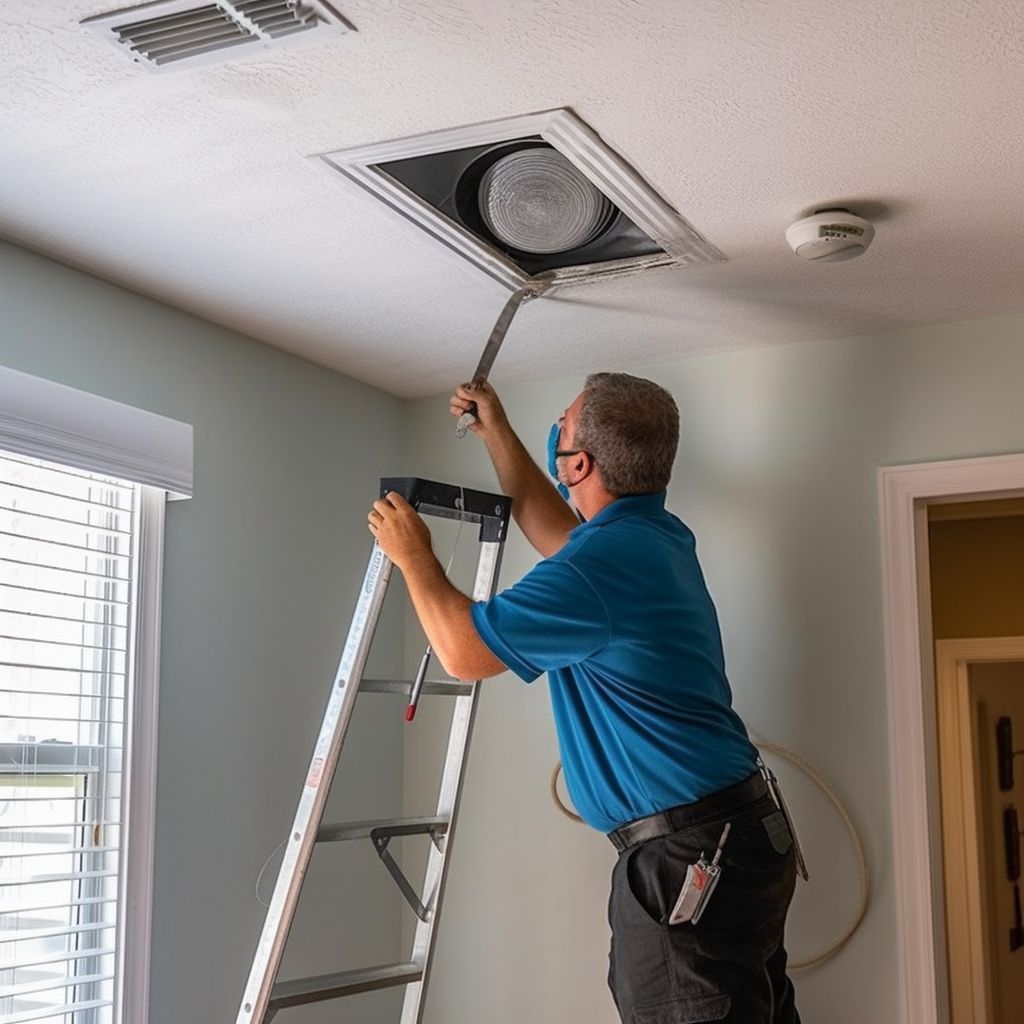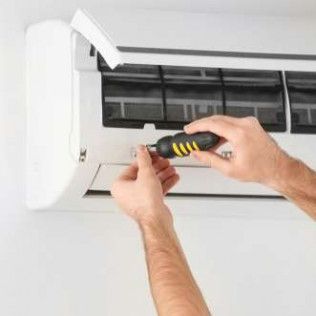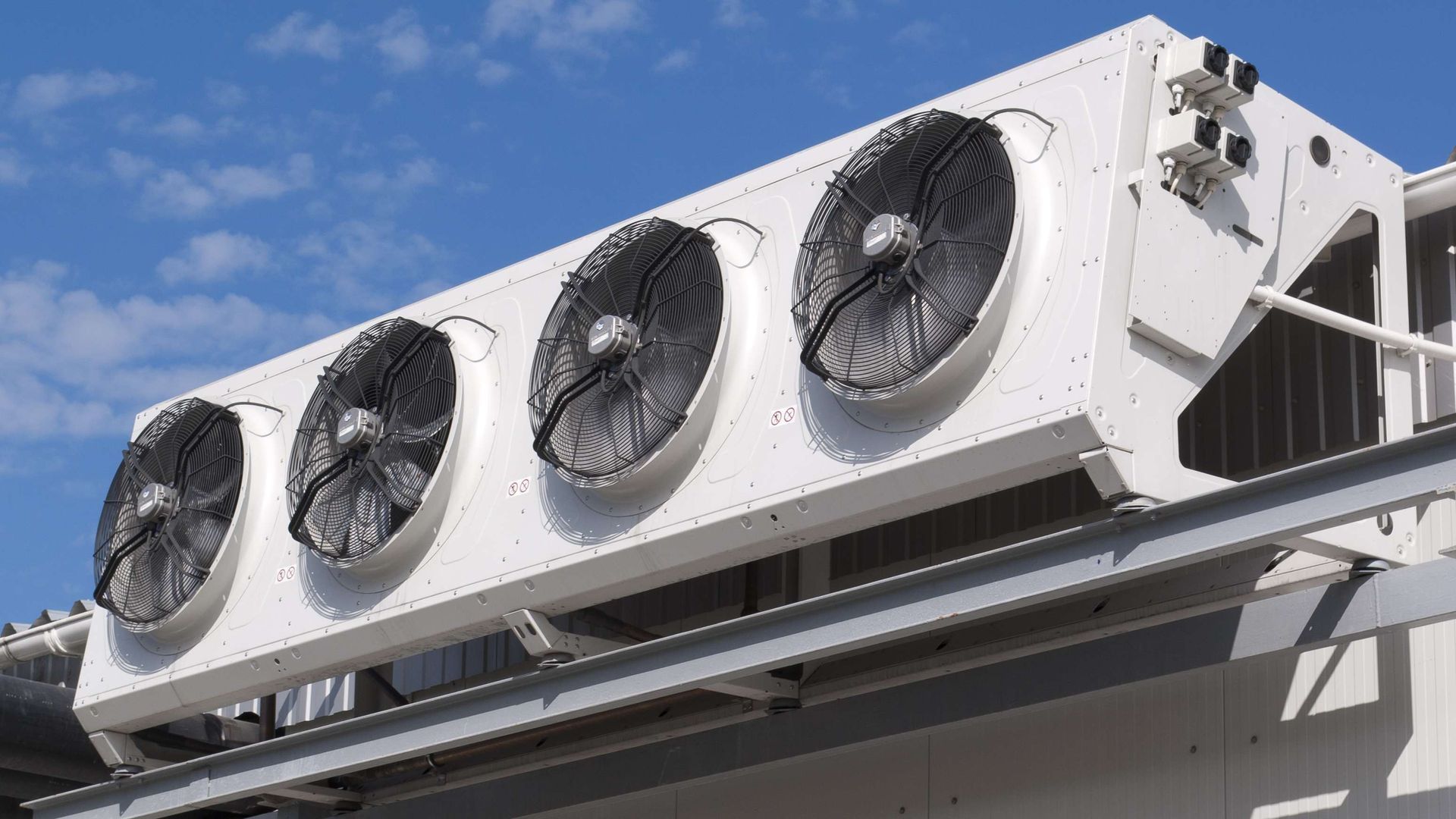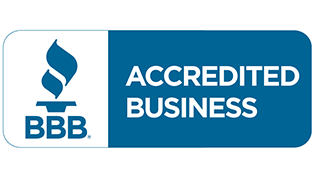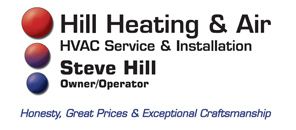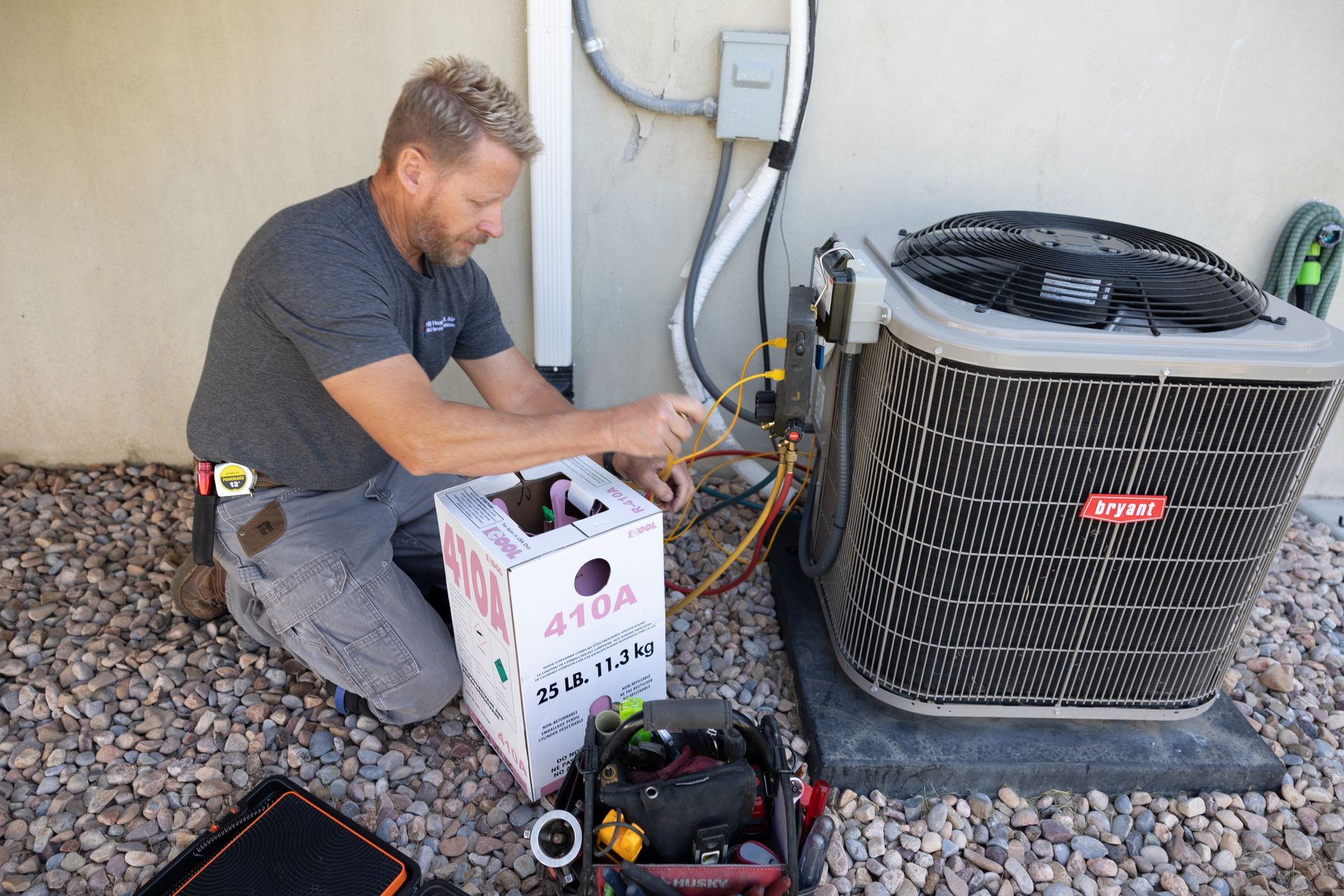
How Much Does AC Repair Usually Cost?
Knowing how much it costs to repair your AC is important for both homeowners and businesses. If your air conditioner isn’t working right—whether it’s making odd noises, failing to cool your space, or not turning on—you’ll want to understand the potential repair costs.
AC repair prices vary depending on what needs fixing, how old your system is, and even where you live. This guide breaks down the details, so you’re prepared to make smart decisions when your AC needs repairs.
Average Cost of AC Repairs
The cost of AC repairs can range widely, but understanding the typical expenses can help you budget and avoid surprises. On average, homeowners spend around $369 on AC repairs. However, costs usually fall between $100 and $610, depending on the type of repair and other factors.
Factors That Affect the Average Cost
Several elements influence how much you’ll pay for AC repairs. These include:
- Type of Repair Needed: Fixing minor issues like a thermostat is less expensive than major problems like a compressor replacement.
- System Type and Size: Central air systems, ductless mini-splits, and window units all have different repair costs.
- Location: Labor rates and material costs vary by region, with some areas charging more for HVAC services.
- Seasonality: Repair costs often increase during peak summer months when AC demand is high.
Understanding these variables can help you get a clearer picture of what to expect when your AC needs fixing.
Factors Influencing AC Repair Costs
The cost of AC repairs isn’t one-size-fits-all. Several factors play a role in determining how much you’ll pay when your unit needs fixing. Let’s break down the key elements that can affect the final price.
Type of Repair Needed
Different components of your AC system require different levels of effort and expense to repair. For example:
- Thermostat Replacement: Costs range from $60 to $440, depending on whether it’s a simple repair or a complete replacement.
- Blower Motor Repair: Expect to pay between $150 and $700 for parts and labor.
- Refrigerant Leak Repair: Repairing a leak can cost $200 to $1,500, while recharging refrigerant usually adds $100 to $600.
Unit Type and Size
Your AC system’s type and size directly impact repair costs. Common systems include:
- Central Air Systems: Repairs typically range from $100 to $500.
- Ductless Mini-Splits: These systems cost more to repair, averaging between $750 and $900.
- Window Units: Repairs for smaller systems like these are usually on the lower end, often under $150.
Age and Condition of the Unit
Older AC units are often more expensive to repair. Parts may be harder to find, and the likelihood of additional issues increases with age. In some cases, replacing the system might be more cost-effective.
Geographical Location
Your location also affects AC repair costs. In regions with higher labor rates or extreme weather, prices may be higher. For example:
- New York: The average HVAC repair cost is around $500.
- Florida or Texas: Costs are typically lower, averaging $340 due to higher competition and demand.
Seasonality
AC repair costs can spike during peak seasons, like summer, when demand for HVAC services is at its highest. Scheduling repairs during off-peak times may save you money and ensure faster service.
Common AC Repairs and Their Costs
When your AC isn’t working properly, understanding the most common repairs and their costs can help you plan ahead. Here’s a breakdown of the most frequent issues homeowners face and what they typically cost to fix.
Thermostat Replacement
A malfunctioning thermostat can cause your AC to run inefficiently or not at all. Depending on the type of thermostat, replacement costs range from $60 to $440. Smart thermostats are more expensive but can offer long-term energy savings.
Blower Motor Repair
The blower motor is responsible for circulating air throughout your home. Repairs typically cost between $150 and $700, depending on whether the motor needs repair or complete replacement.
Capacitor Replacement
The capacitor helps your AC system start and run smoothly. When it fails, your unit might not turn on. Replacing a capacitor usually costs between $120 and $475, depending on the make and model of your system.
Refrigerant Leak Repair and Recharge
Low refrigerant levels often point to a leak, which can reduce your AC’s cooling efficiency. Repairing a leak costs $200 to $1,500, while recharging refrigerant adds $100 to $600.
Compressor Replacement
The compressor is one of the most critical and expensive parts of an AC system. Replacing it can cost anywhere from $600 to $2,500. For older systems, it might be more cost-effective to replace the entire unit instead of just the compressor.
By understanding these common repairs and their costs, you’ll be better prepared to tackle any AC issues that come your way.
DIY vs. Professional Repairs
When your AC system isn’t working properly, you might wonder if you can fix it yourself or if you need to call a professional. Let’s break down when it’s appropriate to tackle repairs on your own and when hiring a licensed HVAC technician is the better choice.
DIY Repairs
For minor issues and routine maintenance, you can often handle the job yourself. Some tasks homeowners commonly perform include:
- Cleaning or Replacing Air Filters: This is one of the easiest ways to improve efficiency and airflow. Filters should be replaced every 1–3 months, depending on usage.
- Clearing Debris from the Unit: Dirt and leaves can block airflow. Gently clean around the outdoor unit to keep it running smoothly.
- Resetting the Circuit Breaker: If your AC suddenly stops working, check and reset the breaker before calling for help.
While DIY repairs can save money, it’s important to know your limits. Attempting to fix complex issues like electrical components or refrigerant leaks can lead to safety hazards and higher repair costs down the road.
Professional Repairs
For anything beyond basic maintenance, it’s best to call a licensed HVAC technician. Here’s why:
- Expert Diagnosis: Professionals have the tools and experience to pinpoint the problem quickly.
- Warranty Protection: Many AC systems come with warranties that require professional repairs to remain valid.
- Safety: Handling refrigerants, electrical components, or heavy parts requires specialized training to avoid accidents.
Hiring a professional might seem more expensive upfront, but it often saves time and ensures the job is done right. For major repairs like compressor replacement or refrigerant leaks, always rely on a licensed technician.
Preventative Maintenance Tips
Regular maintenance is the key to avoiding costly AC repairs and ensuring your system runs efficiently for years. By taking a proactive approach, you can prevent common problems and extend the life of your air conditioner. Here are some simple tips to keep your AC in top shape.
Schedule Annual Inspections
Have a licensed HVAC technician inspect your system at least once a year, ideally before summer begins. A professional tune-up can catch potential issues early and keep your AC running efficiently during peak seasons.
Replace Air Filters Regularly
Dirty filters reduce airflow and make your AC work harder, increasing energy bills and wear on the system. Replace your air filters every 1–3 months, depending on usage and whether you have pets or allergies.
Keep the Outdoor Unit Clear
Debris like leaves, dirt, and grass can block airflow to your outdoor condenser unit. Check it regularly and clear away any buildup to ensure proper ventilation.
Check Your Thermostat Settings
Make sure your thermostat is set to a comfortable temperature and programmed for energy efficiency. Consider upgrading to a smart thermostat, which can help you monitor and optimize energy use.
Clean the Coils
Dirty coils reduce your AC’s ability to cool effectively. Clean the evaporator and condenser coils at least once a year to maintain optimal performance.
Seal and Insulate Ducts
Leaky ducts waste energy and force your AC to work harder. Inspect and seal any visible leaks and consider adding insulation to improve efficiency.
By following these simple steps, you can avoid many common AC problems and save money in the long run.
Conclusion
Understanding AC repair costs helps you plan ahead and avoid unexpected expenses when your system breaks down. Whether it’s a minor repair like a thermostat replacement or a larger issue such as a compressor failure, being informed about costs and options ensures you make the best decision for your home.
For trusted HVAC services in South Jordan and Salt Lake City, Hill Heating and Air is here to help. Owned by Steve Hill, this reliable company serves customers from Provo to Ogden, UT, offering expert AC repair, installation, and maintenance, as well as comprehensive heating services. Whether you need a quick fix, routine upkeep, or a full system replacement, Hill Heating and Air delivers prompt, high-quality solutions to keep your home comfortable year-round.
Don’t let HVAC issues disrupt your comfort. Contact Hill Heating and Air today for fast, professional service tailored to your needs.
Contact Us
Contact Us
We will get back to you as soon as possible.
Please try again later.
HILL HEATING & AIR, LLC
South Jordan, UT 84095
CALL US
Phone: (801) 860-0655
HOURS | 24/7 AFTER HOURS AND WEEKENDS
- Mon - Fri
- -
- Sat - Sun
- Closed
HILL HEATING & AIR, LLC
Salt lake city , UT 84130 United States of America
CALL US
Phone: (801) 860-0655
HOURS | 24/7 AFTER HOURS AND WEEKENDS
- Mon - Fri
- -
- Sat - Sun
- Closed
Copyright © 2023 Hill Heating & Air, LLC, all rights reserved.

